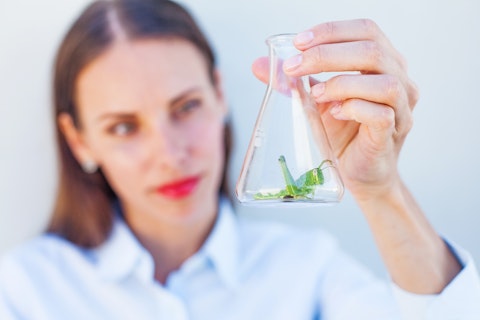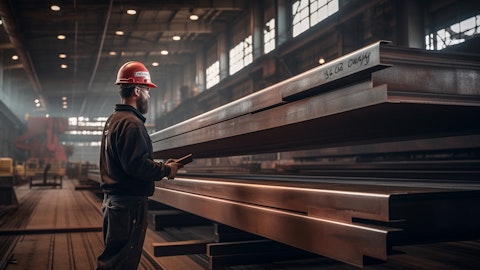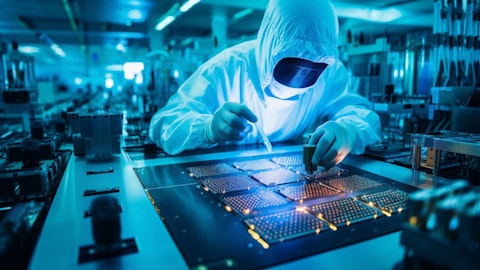Around 75% of the world’s land is already degraded, and unless we reverse course, up to 90% could be degraded by 2050, according to UNESCO and the UNCCD. That’s billions of hectares losing fertility at breakneck pace: between 2015 and 2019, more than 100 million hectares per year were degraded through erosion, compaction, salinization, and nutrient depletion. Soil forms at millennia-timescales; what takes nature 500 to 1,000 years happens in mere decades thanks to plowing, monoculture, and deforestation.
This isn’t theoretical. About 3.2 billion people now depend on land that is already compromised or in decline. In drylands, regions especially vulnerable to heat and drought, degradation and desertification are intensifying, amplifying agricultural risk.
And then there’s climate chaos. Warming, erratic rainfall, and intensifying droughts make what’s left of fertile land increasingly precarious. In Africa, for example, Kenya had its worst drought in four decades in 2023; southern Africa had its worst in a century, slashing maize harvests by half in parts of Zambia and Zimbabwe.
Meanwhile, global population growth continues forcing demand. The FAO and other bodies estimate we’ll need 50–70% more food by 2050 to feed nearly 10 billion people, requiring far more output from ever-shrinking productive land.
All of this sets the stage for AgTech not just as a high-growth sector, but as an existential one. Conventional agriculture — heavy tillage, single-crop systems, chemical fertilizers, and mass irrigation — is literally undermining the Earth’s capacity to grow food. Yield declines of 10–50% in degraded zones are already documented, especially where soil organic matter has collapsed.
At the same time, the AgTech industry is navigating a difficult reality. According to McKinsey, venture funding has plunged by about 60% since late 2021, marking a full-blown capital drought, even as many AgTech startups struggle or fail, with billions at risk. A recent U.S. sector report confirms deal volume is down ~25% and funding down ~3.6% in Q1 2025, though areas like precision farming and automation remain active.
That might sound like bad news—but the flip side is opportunity. When the crisis is existential, delivery of proven, scalable tech suddenly becomes critically needed. Tools such as precision irrigation, carbon-sequestering soil microbes, gene-edited crops, autonomous machinery, and vertical farming platforms can restore fertility, raise yields, and help agriculture operate with far less water, fertilizer, and land waste.
So yes, investment has cooled—but the problem hasn’t. Civilizations can’t grow food from dead dirt. AgTech is the only lifeline left.
Also read 12 Most Advanced Countries in AgTech.

Mila Supinskaya Glashchenko/Shutterstock.com
Our Methodology
For our list, we focused on stocks from Blackrock’s Emergent Food and AgTech Multisector ETF, and picked stocks across the entire AgTech value chain. We ensured that these stocks were either pure play or had major share in the AgTech industry. Finally, we ranked them on the number of hedge funds that held stakes in them as of Q1 2025.
Why are we interested in the stocks that hedge funds pile into? The reason is simple: our research has shown that we can outperform the market by imitating the top stock picks of the best hedge funds. Our quarterly newsletter’s strategy selects 14 small-cap and large-cap stocks every quarter and has returned 373.4% since May 2014, beating its benchmark by 218 percentage points (see more details here).
10. AGCO Corporation (NYSE:AGCO)
Number of Hedge Fund Holders: 27
AGCO Corporation (AGCO) is one of the best agriculture stocks to buy now. On July 1, 2025, AGCO reached a long-awaited settlement with Tractors and Farm Equipment Limited (TAFE), ending a protracted commercial and legal dispute that had stretched for over a year. As part of the agreement, TAFE repurchased AGCO’s 20.7% stake in the company for $260 million. In return, TAFE secured exclusive rights to the Massey Ferguson brand in India, Nepal, and Bhutan, untangling a complex web of joint ownership and brand licensing issues that had fueled tension between the two companies.
The deal also wiped the slate clean on all existing contracts and lawsuits between the parties. Both companies agreed to unwind their previous arrangements and step away from each other’s boards, effectively ending their governance entanglement. TAFE will retain a passive 16.3% stake in AGCO but is restricted from increasing that position and is required to vote in alignment with AGCO’s board on most matters. The agreement includes non-disparagement terms, sealing the truce.
This is a strategic reset for AGCO, which gives it clean separation from a tangled partnership in one of its largest potential markets.
AGCO Corp (NYSE:AGCO) is a U.S.-based manufacturer of agricultural equipment and precision farming technology, with global brands like Massey Ferguson, Fendt, Valtra, and PTx.
9. Nutrien Ltd. (NYSE:NTR)
Number of Hedge Fund Holders: 32
Nutrien Ltd. (NYSE:NTR) is one of the best agriculture technology stocks to buy now. On July 23, 2025, UBS raised its price target on the stock from $56 to $64 while maintaining a Neutral rating, signaling cautious optimism. While the valuation bump hints at improving conditions, perhaps tighter execution or slightly firmer fertilizer pricing, the firm held back from upgrading the rating. UBS analysts remain concerned about soft demand in global fertilizer markets, particularly for nitrogen and potash, suggesting that broader macro conditions still weigh on Nutrien’s near-term upside. The firm had previously downgraded Nutrien back in October 2024 due to low projected free cash flow and flat earnings outlook, a stance that hasn’t shifted dramatically despite the raised target.
Nutrien Ltd. (NYSE:NTR) is a Canadian agricultural giant and the world’s largest provider of crop inputs and services, including potash, nitrogen, and phosphate products, alongside a massive retail distribution network that serves growers across the Americas and beyond.
8. Waters Corporation (NYSE:WAT)
Number of Hedge Fund Holders: 33
Waters Corporation (NYSE:WAT) is one of the best agriculture technology stocks to buy now. On August 4, 2025, Jefferies analyst Tycho Peterson reiterated a Buy rating on Waters while trimming the price target from $435 to $385. The revision wasn’t a knock on the company’s strength, it was a tempered recalibration after a 12% post-merger dip. Jefferies called the Q2 earnings a “solid beat,” with revenue and EPS both exceeding consensus. A portion of the upside was front-loaded due to tariff pressures, but the firm emphasized that Waters is well-positioned to outperform in the back half of the year.
Despite trimming the target, Peterson expressed confidence in the trajectory: raised full-year guidance, strong recurring revenue, and a major upcoming merger with Becton Dickinson’s diagnostics arm all point to scale, synergies, and a wider moat. Jefferies noted that the BD merger is being underappreciated by the market and should ultimately reinforce Waters’ long-term value proposition.
Waters Corporation (NYSE:WAT) is a global leader in analytical instruments and software, serving life sciences, food safety, and agriculture, and offering critical tools in everything from pesticide residue analysis to precision crop science.
7. FMC Corporation (NYSE:FMC)
Number of Hedge Fund Holders: 38
FMC Corporation (NYSE: FMC) is one of the best agriculture technology stocks to buy now. On August 1, 2025, RBC Capital’s Arun Viswanathan retained his Sector Perform (Hold) rating, but cut the price target from $47 to $42. The firm acknowledged FMC delivered a modest Q2 beat and stuck to its full‑year guidance, yet investors may have hoped for stronger near‑term outlook from management.
Viswanathan flagged caution around the Q3 guidance, noting it lacked clear evidence of earnings acceleration, and pointed out that most of FMC’s free cash flow in 2025 is expected to arrive in Q4, limiting upside for the near term.
Despite this cautious stance, RBC didn’t downgrade the stock, which signals continued belief in FMC’s longer-term positioning in crop protection and its global footprint.
Based in Philadelphia, FMC Corporation (NYSE:FMC) is a global leader in crop protection solutions and specializes in insecticides, herbicides, fungicides, and emerging biologicals.
6. Trimble Inc. (NASDAQ:TRMB)
Number of Hedge Fund Holders: 39
Trimble (TRMB) is one of the best agriculture technology stocks to buy now. On July 22, 2025, Trimble (NASDAQ:TRMB) deepened its footprint in U.S. civil construction by naming APEX Technologies, a division of McCoy Construction & Forestry, as its newest Trimble Technology Outlet. The move signals a continued push to integrate Trimble’s advanced positioning systems and grade control tech into the workflows of John Deere equipment users, particularly those using aftermarket tools like LevelBest and SharpGrade.
APEX will now offer Trimble’s Works Subscription service, essentially a bundled tech and service plan with fixed monthly payments and continuous software support. But more importantly, this partnership expands Trimble’s reach across multiple central U.S. states by leveraging McCoy’s existing sales and support network. Customers get local installation, training, and on-site technical help, making it easier to adopt Trimble’s tools across mixed fleets without vendor lock-in.
This kind of strategic distribution, not just tech innovation, is why Trimble remains a top pick in the agtech and infrastructure automation space.
Trimble (NASDAQ:TRMB) is a U.S.-based technology company specializing in advanced location-based solutions, including GPS, laser, and optical technologies. Its tools make it a vital company in the Agriculture-Technology value chain.
5. Corteva, Inc. (NYSE:CTVA)
Number of Hedge Fund Holders: 42
Corteva, Inc. (NYSE:CTVA) is one of the best agriculture technology stocks to buy now. On August 4, 2025, they joined Chemours and DuPont in reaching a landmark settlement with New Jersey’s state government to resolve long-running PFAS (“forever chemicals”) contamination claims tied to four industrial sites. Under the agreement, the trio will pay $875 million over 25 years, with a present value of roughly $500 million before taxes.
Corteva’s share: approximately 14.5%, or about $72 million in present-value terms. Notably, $16.5 million of the total addresses PFAS contamination not linked to their own sites, such as firefighting foam usage statewide. The payments only begin no earlier than January 1, 2026, pending court approval and a public comment period.
This is the largest environmental settlement in New Jersey’s history. Alongside the $875M payment, the deal includes up to $1.2 billion in remediation funding, plus a $475M reserve fund secured by surety bonds to guard against potential bankruptcy of the companies involved.
Corteva is a global leader in agriculture technology, specializing in seed genetics, crop protection chemicals, and digital ag tools. Spun out of DowDuPont in 2019 and listed under ticker CTVA, the company employs advanced science to boost crop yields, resistance, and sustainability. Their portfolio spans hybrid seeds, herbicides, fungicides, and digital farming platforms, serving farmers in 110 countries.
4. CF Industries Holdings, Inc. (NYSE:CF)
Number of Hedge Fund Holders: 42
CF Industries (NYSE: CF) is one of the best agriculture technology stocks to buy now. On July 29, 2025, J.P. Morgan upgraded CF Industries from Underweight to Neutral, raising its price target from $75 to $92, a sharp 22% increase. The move follows growing expectations that the U.S. government could impose new tariffs on Russian urea imports, a critical nitrogen fertilizer that currently enters the American market tariff-free.
With other exporters already facing 10% duties, any leveling of the playing field would boost domestic producers like CF Industries, which already commands a dominant position in U.S. fertilizer supply. Analyst Jeffrey Zekauskas noted that tightening trade restrictions on Russia would likely firm up urea prices, improving CF’s margins and revenue visibility.
CF Industries (NYSE:CF) is a leading global manufacturer and distributor of nitrogen products used to boost crop yields. Based in North America, it serves agricultural and industrial customers worldwide, playing a central role in the global food supply chain.
3. Valmont Industries, Inc. (NYSE:VMI)
Number of Hedge Fund Holders: 45
Valmont Industries (NYSE:VMI) is one of the best agriculture technology stocks to buy now. On July 23, 2025, DA Davidson analyst Brent Thielman maintained a Neutral rating on the stock but raised the price target from $325 to $400, reflecting renewed confidence in Valmont’s long-term trajectory.
Thielman pointed to the company’s strong internal execution and a resilient earnings base that suggests solid upside over a three-to-four-year horizon. While cautious on the near-term due to softness in agricultural demand, the note acknowledged that recent earnings exceeded expectations—Valmont posted Q2 adjusted EPS of $4.88 versus the $4.71 consensus, and revenue hit $1.05 billion, beating forecasts. The revised price target reflects the firm’s belief that Valmont’s strategic initiatives are gaining traction, particularly in infrastructure and irrigation technologies. However, Thielman emphasized that much of the near-term upside has already been priced in following the stock’s recent rebound.
Valmont Industries is a global leader in engineered products and services for infrastructure and agriculture. Known for its mechanized irrigation systems and smart farming technologies, the company operates in over a 100 markets, with about 83 facilities.
2. Deere & Company (NYSE:DE)
Number of Hedge Fund Holders: 53
Deere & Company (NYSE:DE) is one of the best agriculture technology stocks to buy now. On August 4, 2025, Deere reportedly committed over $250 million to upgrade three of its manufacturing facilities in the Quad Cities: Harvester Works in East Moline, John Deere Seeding in Moline, and Davenport Works in Iowa. The investment includes more than $149 million earmarked for a massive 385,000-square-foot renovation at Harvester Works, aimed at preparing the plant for next-generation equipment like the X9 combine.
According to the Quad Cities Business Journal, this marks one of Deere’s largest regional capital expenditures in years and signals a firm recommitment to domestic production. While the company hasn’t released a national press statement yet, the move aligns with its ongoing push to modernize its manufacturing base and deepen its roots in the U.S., especially after recently announcing broader $20 billion plans to invest across its American footprint.
Deere & Company (NYSE:DE), headquartered in Moline, Illinois, is a global leader in agricultural, construction, and forestry equipment. Its precision-agriculture technology and autonomous machinery have made it a central player in the future of farming.
1. Ecolab Inc. (NYSE:ECL)
Number of Hedge Fund Holders: 63
Ecolab Inc. (NYSE:ECL) is one of the best agriculture technology stocks to buy now. On July 30, 2025, Citigroup reaffirmed its bullish stance on the company, maintaining a “Buy” rating and setting a price target of $315. While the target represents a modest pullback from the earlier $325 estimate made on July 3, analysts at Citi remain confident in Ecolab’s long-term earnings trajectory. Their updated outlook came after Ecolab’s Q2 earnings fell slightly short of expectations, posting an EPS of $1.89 versus consensus estimates, though revenue held steady at $4.02 billion.
Despite the miss, Citigroup cited strong fundamentals, resilient operating income—up 10% year over year—and robust demand across key verticals like life sciences and water management as reasons to stay optimistic. The firm expects Ecolab to post low-to-mid-teens EPS growth in 2025, followed by another double-digit gain in 2026, bolstered by efficiency improvements and digital expansion through its “One Ecolab” initiative.
Ecolab (NYSE:ECL) is a global leader in water, hygiene, and energy technologies. Its solutions serve a wide range of industries, including agriculture, food safety, and industrial processing—making it a critical player in the intersection of sustainability and food production.
While we acknowledge the potential of ECL to grow, our conviction lies in the belief that some AI stocks hold greater promise for delivering higher returns and have limited downside risk. If you are looking for an AI stock that is more promising than ECL and that has 100x upside potential, check out our report about this cheapest AI stock.
READ NEXT: 30 Stocks That Should Double in 3 Years and 11 Hidden AI Stocks to Buy Right Now.
Disclosure: None. Insider Monkey focuses on uncovering the best investment ideas of hedge funds and insiders. Please subscribe to our free daily e-newsletter to get the latest investment ideas from hedge funds’ investor letters by entering your email address below.





